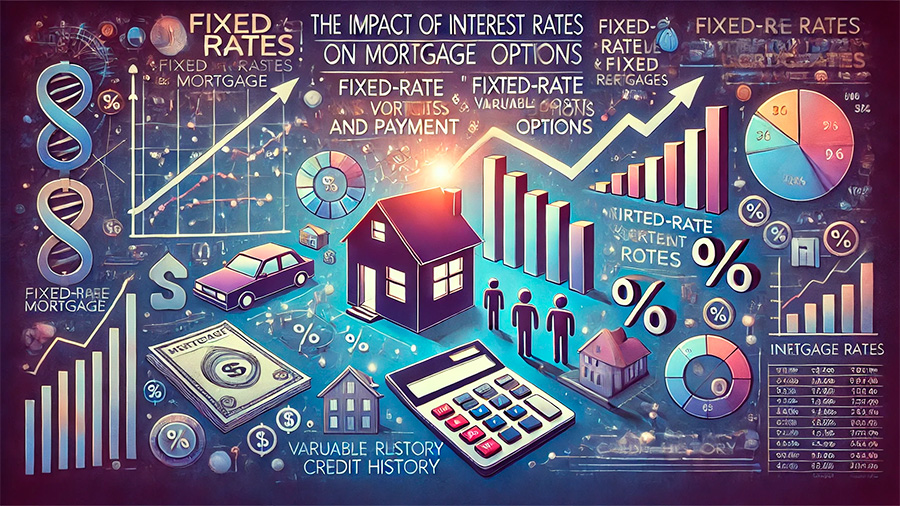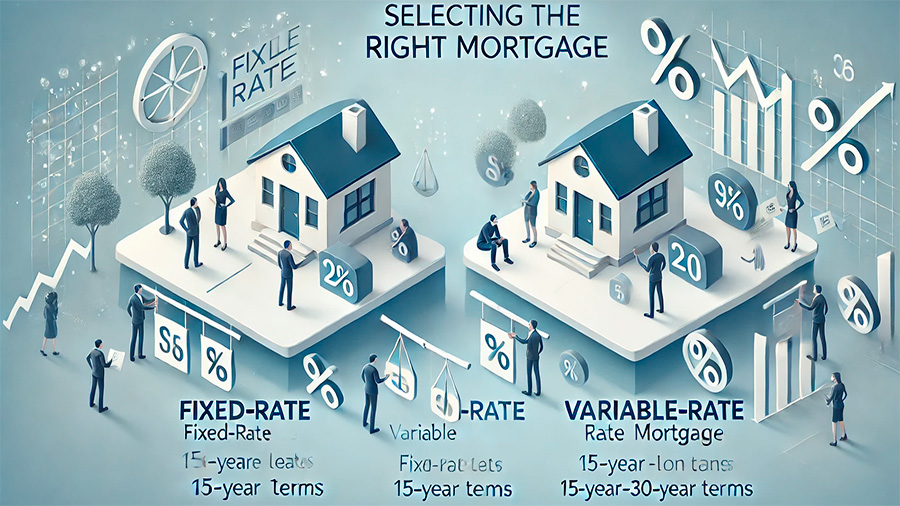Purchasing a home is one of the most significant financial decisions you’ll ever make, and for most people, it involves taking out a mortgage—a loan specifically designed for buying property. Buying a home on credit allows you to invest in real estate without needing the full purchase price upfront. However, navigating the world of mortgages, interest rates, and credit requirements can be complex. Understanding these elements is crucial for securing a loan that aligns with your financial situation and long-term goals.
Before diving into the home-buying process, it’s essential to familiarize yourself with how mortgages work, what factors influence your interest rates, and how your credit history impacts your ability to obtain favorable loan terms. Armed with this knowledge, you’ll be better prepared to make informed decisions that protect your financial health and ensure a successful home purchase.
What Is a Mortgage?
A mortgage is a type of loan specifically designed to help you purchase a home. Unlike other loans, mortgages are secured by the property itself, meaning that the lender has the right to foreclose on the home if you fail to make your payments. Mortgages typically come with a fixed or variable interest rate and are repaid over a long period, usually 15 to 30 years.
Fixed-rate mortgages offer stability with consistent monthly payments, making them a popular choice for homebuyers who prefer predictability. In contrast, variable-rate mortgages, also known as adjustable-rate mortgages (ARMs), may start with lower initial payments but can fluctuate over time based on market conditions. Understanding the differences between these options is crucial for selecting a mortgage that suits your financial needs.

How Interest Rates Affect Your Mortgage
Interest rates are a critical factor in determining the overall cost of your mortgage. Even a small difference in interest rates can significantly impact your monthly payments and the total amount you pay over the life of the loan. Generally, fixed-rate mortgages offer higher initial rates compared to variable-rate mortgages, but they provide the security of knowing your rate won’t change over time.
Variable-rate mortgages, on the other hand, may offer lower initial rates, making them attractive to some buyers. However, these rates can increase after a set period, potentially leading to higher monthly payments. If you choose a variable-rate mortgage, it’s essential to consider your ability to manage future payment increases.
The interest rate you’re offered depends on several factors, including current market conditions, the type of mortgage you choose, and your credit history. Lenders assess your creditworthiness to determine the risk of lending to you, which directly influences the interest rate they offer. A higher credit score typically results in a lower interest rate, reducing the overall cost of your mortgage.
The Impact of Your Credit History on Home Loans
Your credit history plays a crucial role in securing a mortgage. Lenders use your credit history to assess your financial responsibility and determine whether you qualify for a loan, as well as the interest rate and terms you’ll receive. A strong credit history indicates that you’re a reliable borrower, which can help you secure a mortgage with favorable terms.
If your credit history shows late payments, high balances, or other negative marks, it may be challenging to qualify for a mortgage, or you may be offered a loan with a higher interest rate. Before applying for a mortgage, it’s wise to review your credit report and address any issues that could hinder your ability to secure a favorable loan.
Improving your credit score before applying for a mortgage can save you thousands of dollars over the life of the loan. Simple steps like paying down debt, making payments on time, and avoiding new credit inquiries can boost your credit score and enhance your mortgage options.

Choosing the Right Mortgage for Your Situation
Selecting the right mortgage involves more than just finding the lowest interest rate. It’s essential to consider your long-term financial goals, how long you plan to stay in the home, and your comfort level with potential changes in your monthly payments.
Fixed-rate mortgages offer stability and predictability, making them ideal for buyers who plan to stay in their home for an extended period. If you prefer the certainty of knowing your payments won’t change, a fixed-rate mortgage may be the best option.
Variable-rate mortgages might be suitable if you expect your income to increase over time or if you plan to sell the home before the rate adjusts. However, it’s crucial to be prepared for potential increases in your payments if you choose this option.
Another consideration is the loan term. A shorter loan term, such as 15 years, will have higher monthly payments but lower overall interest costs. A longer term, such as 30 years, offers lower monthly payments but results in paying more interest over the life of the loan. Choosing the right term depends on your financial situation and your ability to make higher payments.
Preparing for the Mortgage Application Process
Before applying for a mortgage, it’s essential to be well-prepared. Start by gathering all necessary financial documents, including proof of income, tax returns, and a list of your assets and debts. Lenders will use this information to assess your ability to repay the loan.
It’s also a good idea to get pre-approved for a mortgage before you start house hunting. Pre-approval gives you a clear understanding of how much you can afford to borrow and shows sellers that you’re a serious buyer. During pre-approval, the lender will check your credit history and financial situation, giving you a better idea of the interest rate you might qualify for.
Additionally, consider saving for a larger down payment. While many loans allow for down payments as low as 3%, a higher down payment can reduce your loan amount, lower your monthly payments, and may even help you secure a better interest rate.
Conclusion
Buying a home on credit is a significant financial commitment, but with the right knowledge and preparation, it can also be a wise investment. Understanding the ins and outs of mortgages, interest rates, and how your credit history impacts your loan will help you make informed decisions that align with your financial goals. By choosing the right mortgage, improving your credit, and preparing thoroughly for the application process, you can secure favorable loan terms and set yourself up for long-term financial success in your new home.

